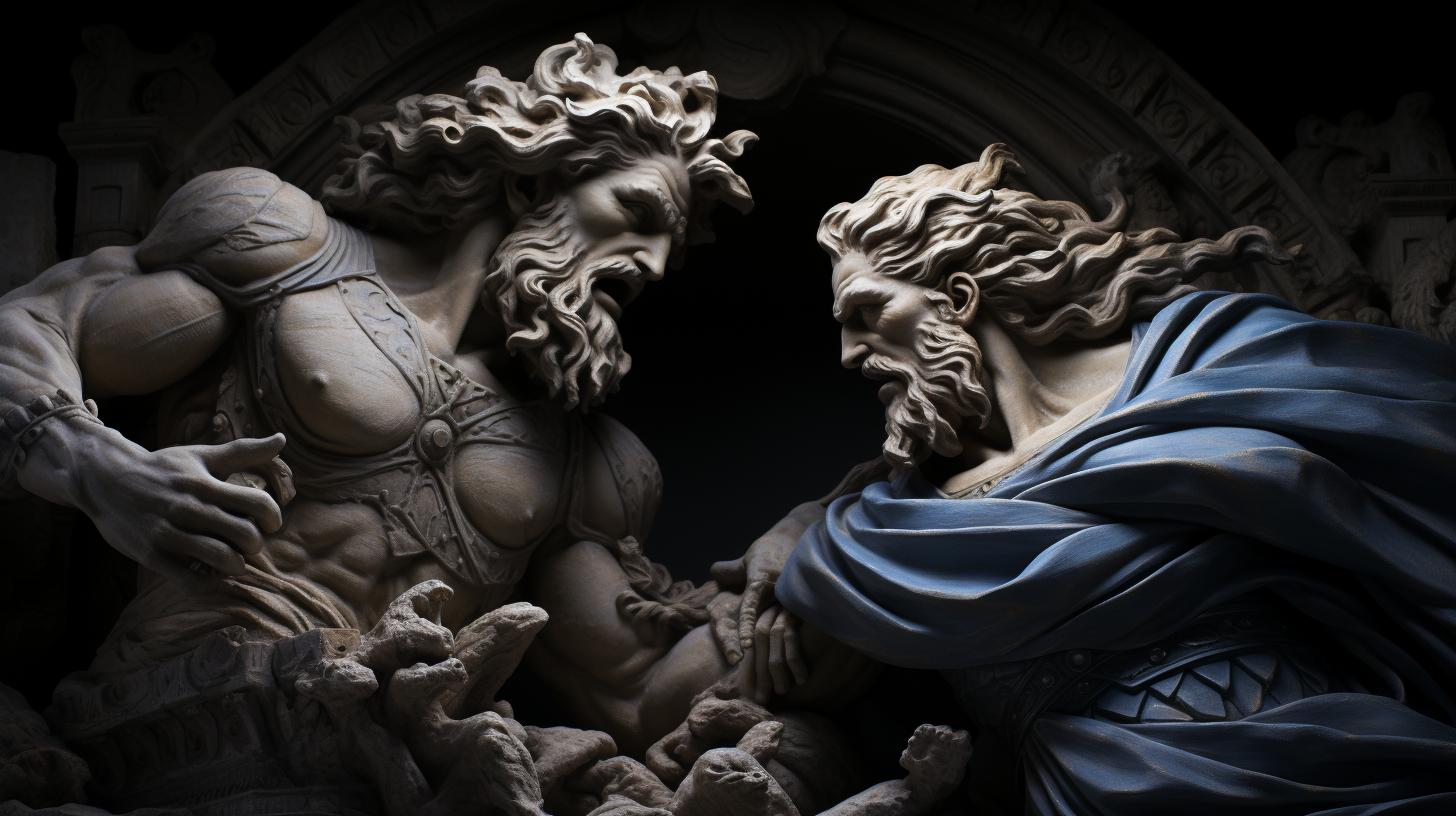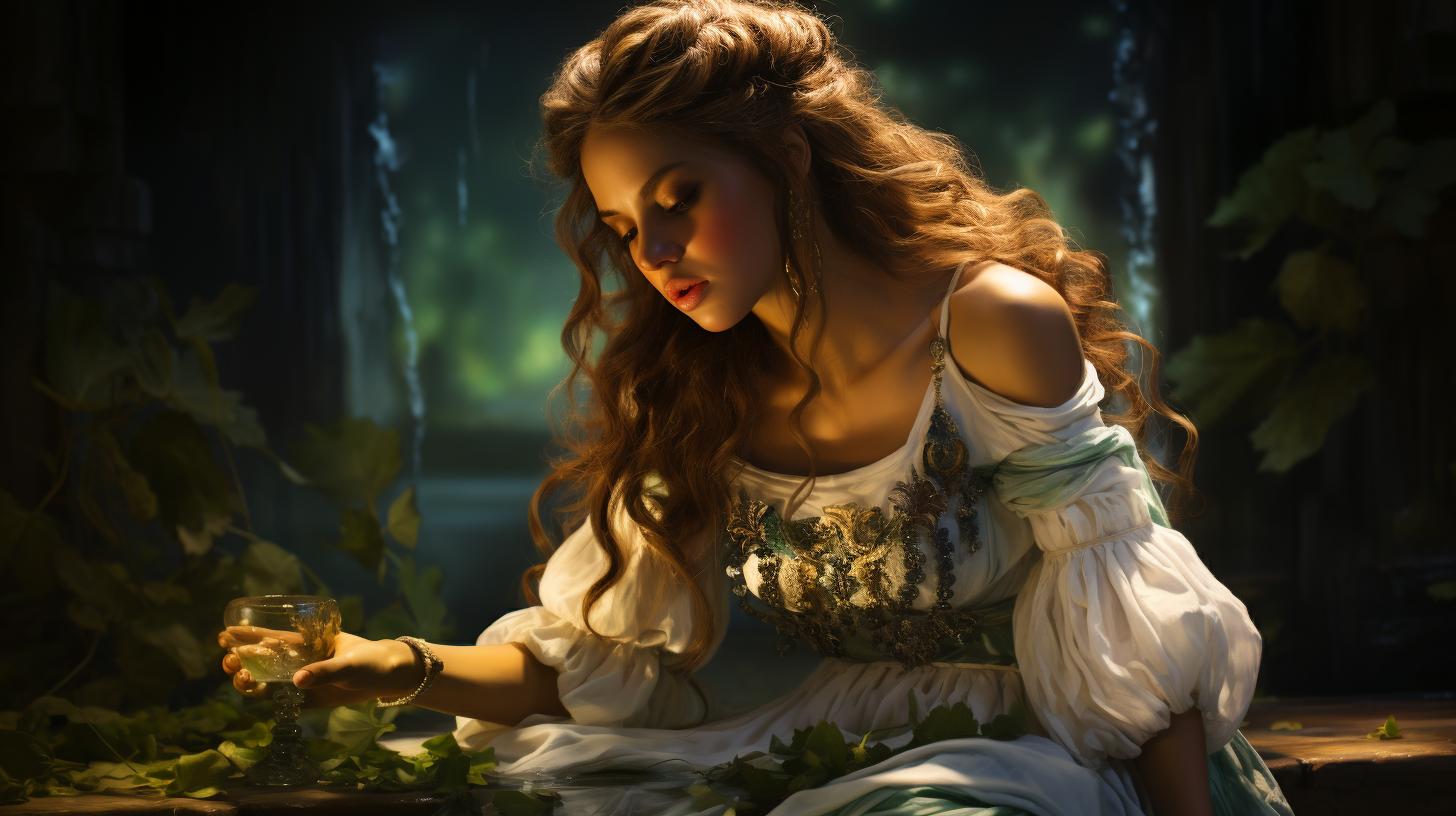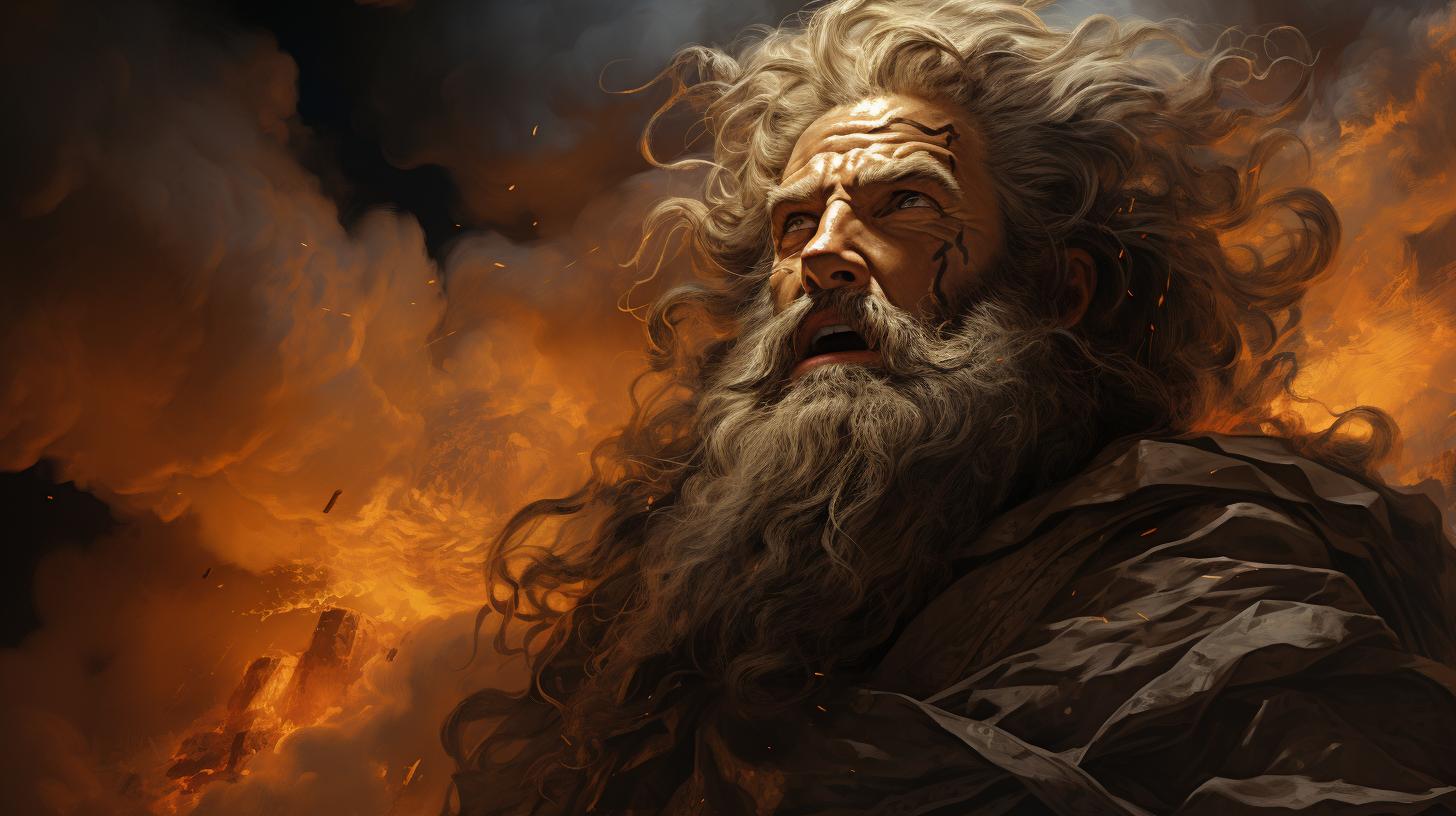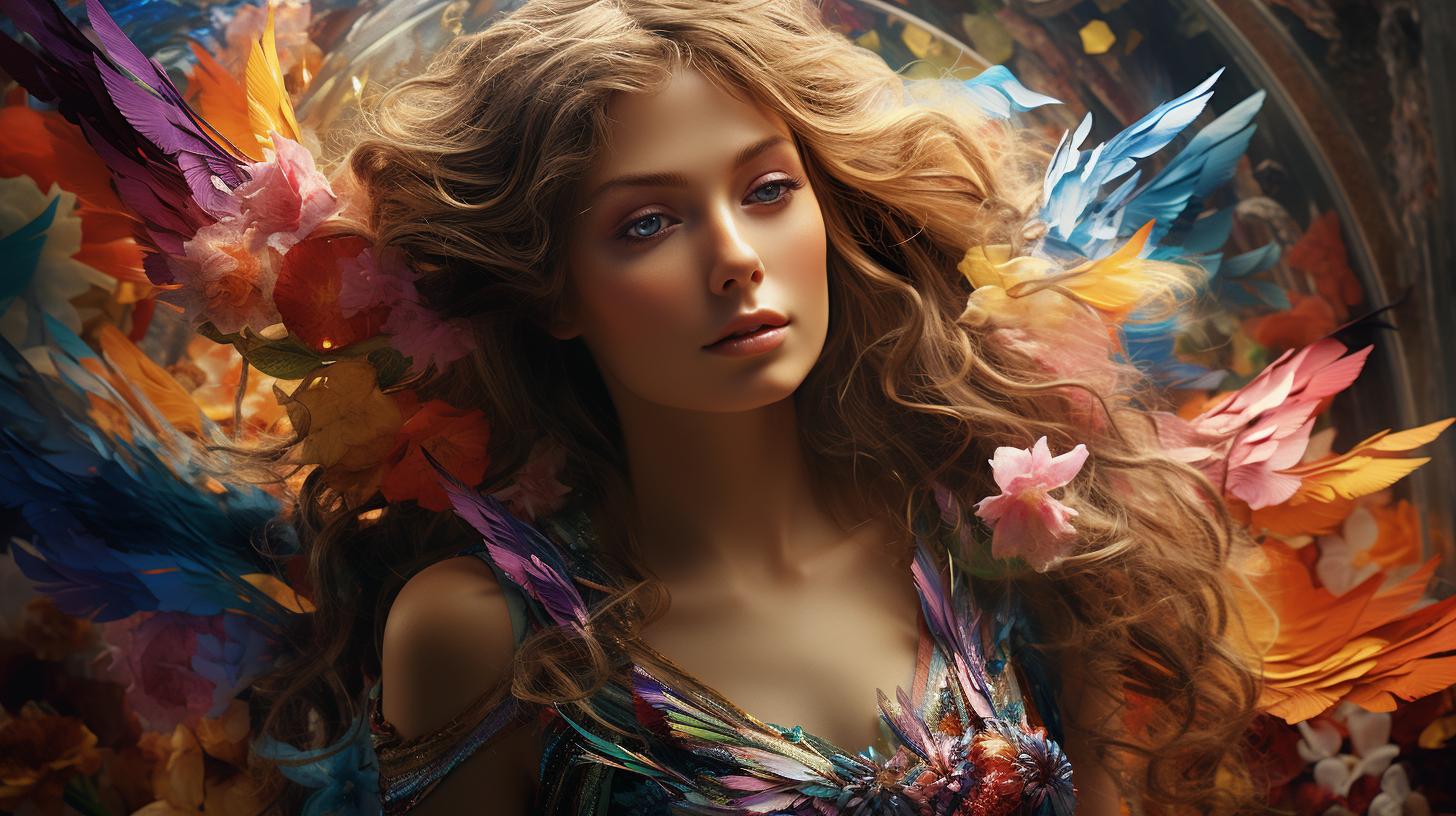Who is the Greek Goddess Aphrodite: Unveiling the Goddess of Love and Beauty

Aphrodite, the Greek goddess of love, beauty, and eternal youth, has captivated mythological tales. She is believed to have been born from the foam of the sea in Cyprus or as the daughter of Zeus and Dione.
Married to Hephaestus despite her numerous lovers, including gods like Ares and mortals like Prince Anchises. Aphrodite’s influence is seen in stories like Eros and Psyche, and her connection with Adonis sparked a dispute with Persephone.
Worshiped in ancient Greece, Aphrodite’s allure extends to art, literature, and contemporary popular culture. This article explores the multifaceted character of Aphrodite.
The Origins of Aphrodite
According to ancient Greek mythology, Aphrodite, the captivating goddess of love, beauty, and fertility, has two different tales describing her origins.
Birth from the Foam of the Sea
One popular version suggests that Aphrodite emerged from the foam of the sea. This enchanting birth occurred when the Titan Cronus killed his father Uranus and cast his severed genitals into the sea.
From the resulting foam, Aphrodite emerged, fully-grown and breathtakingly beautiful.
Aphrodite as the Daughter of Zeus and Dione
Another account, as mentioned by the ancient poet Homer in the Iliad, claims that Aphrodite is the daughter of Zeus, the king of the gods, and the goddess Dione. This version introduces Aphrodite as a divine progeny, born of the supreme ruler of Mount Olympus.
The diverse narratives surrounding Aphrodite’s origins illustrate the rich tapestry of Greek mythology and the enigmatic nature of this beloved goddess, who continues to captivate our imagination.
Aphrodite in Greek Mythology
Aphrodite, the captivating Greek goddess, has a prominent role in Greek mythology.
Her intriguing journey encompasses various aspects, including her marriage to Hephaestus, her relationships with gods and mortal men, her involvement in the story of Eros and Psyche, and her associations with Adonis and Persephone.
Aphrodite’s Marriage to Hephaestus
Aphrodite’s union with Hephaestus, the god of craftsmanship, was not one of love and affection. Zeus, in his wisdom, arranged the marriage to prevent jealousy and conflicts among the gods due to Aphrodite’s overwhelming beauty.
However, Aphrodite sought solace in the arms of other lovers, both divine and mortal.
Aphrodite’s Lovers: Ares and Mortal Men
Despite her marriage, Aphrodite had passionate affairs with various deities, including the notorious god of war, Ares. She also indulged in relationships with mortal men, such as the prince and shepherd Anchises.
These love affairs added layers of complexity to Aphrodite’s character, emphasizing her role as the goddess of love and desire.
Aphrodite’s Role in the Story of Eros and Psyche
The tale of Eros and Psyche highlights Aphrodite’s intricate involvement in human love affairs.
When worshippers turned their attention to Psyche, ceasing their adoration of Aphrodite, the goddess grew envious. In her vengeful act, she sent her son Eros (Cupid) to seek retribution, but Eros himself fell in love with Psyche, leading to a unique and poignant narrative.
Aphrodite’s Involvement with Adonis and Persephone
Aphrodite’s affection for the handsome Adonis resulted in a conflicting situation with Persephone, the wife of Hades. Zeus resolved the dispute by decreeing that Adonis would spend half of the year with Aphrodite and the other half with Persephone, symbolizing the cycle of life, death, and rebirth.
Aphrodite: Goddess of Love, Beauty, and Fertility
Aphrodite, the enchanting goddess of love, beauty, and fertility, held a prominent position in ancient Greek mythology. She was worshipped throughout ancient Greece, revered for her captivating allure and influence over matters of the heart.
Worship of Aphrodite in Ancient Greece
In the city-states of ancient Greece, devoted temples were erected in honor of Aphrodite. These sacred spaces served as gathering points for worshippers seeking to pay homage to the goddess of love.
People often sought her blessings for successful relationships, marriages, and even fertility.
Aphrodite’s Influence in Ancient Greek Art and Culture
Aphrodite’s influence extended beyond religious devotion and permeated the realm of ancient Greek art and culture. Renowned artists depicted her in sculptures, paintings, and other creative forms, emphasizing her captivating beauty and charm.
These artistic representations immortalized her as the epitome of female elegance and elicited a sense of awe and admiration from admirers.
Symbolism and Attributes
- Dove: The dove symbolized peace and love, closely associated with Aphrodite, and often depicted as her sacred bird. It embodied her role as the bringer of harmony and affection.
- Rose: Considered the flower of love, the rose represented Aphrodite’s affinity for romance and desire. It symbolized beauty, passion, and the delicate nature of human emotions.
- Mirror: Often portrayed holding a mirror, Aphrodite symbolized self-reflection and introspection. The mirror represented the introspective journey necessary to comprehend one’s inner beauty and find harmony within oneself.
- Girdle: Aphrodite’s magical girdle played a prominent role in her mythology. This enchanted belt enhanced her irresistible charm and allure, making it a symbol of her power to captivate and entice.
Aphrodite’s symbols and attributes collectively conveyed her role as the embodiment of love, beauty, and fertility, leaving an indelible mark on ancient Greek society.
Aphrodite in Myth and History
Aphrodite, as a prominent figure in Greek mythology, had various associations with other gods and goddesses.
Her connections and interactions played crucial roles in the formation of myths and legends that have endured through history.
Aphrodite’s Association with Other Greek Gods and Goddesses
Aphrodite’s complex relationships with other deities highlight her intriguing character. As the wife of Hephaestus, she found solace in the arms of Ares, the god of war, resulting in the birth of their daughter, Harmonia. This union represented the intricate ties between love and conflict in Greek mythological narratives.
Additionally, Aphrodite became involved in the affairs of other gods. She worked alongside Eros (Cupid) to make Zeus fall in love with the mortal woman, Europa.
These alliances and partnerships showcased her influence over the divine realm and her ability to shape destinies.
Aphrodite’s Connection to the Trojan War
The Trojan War, a legendary conflict between the Greeks and Trojans, was significantly influenced by Aphrodite. In the Judgment of Paris, she was chosen as the most beautiful goddess by Paris, initiating a chain of events that led to the war.
Aphrodite’s intervention in favor of Paris and her subsequent rescue of him from Menelaus showcased her role as a manipulator of love and destiny on the battlefield.
Aphrodite’s Cult Centers, including Corinth
Aphrodite’s worship was central to Greek society, with various cult centers dedicated to her. One of the most notable was in Corinth, where she held a position of prominence. The Corinthians exalted Aphrodite, associating her with fertility, desire, and the flourishing of relationships.
The city’s culture, art, and architecture often bore her influence.
Aphrodite’s Influence on World History
Aphrodite’s impact extended beyond the realm of myth and religion, leaving imprints on the course of world history. Through her archetypal representation of love, beauty, and desire, she inspired countless works of art, literature, and music, both in ancient Greece and throughout the centuries.
Her influence shaped cultural and artistic expressions, leaving a lasting legacy that continues to captivate and inspire.
Aphrodite in Modern Interpretations and Popular Culture
Aphrodite, the Greek goddess of love and beauty, continues to captivate and inspire artists, writers, and creators in modern times. Her iconic status and influential role have left an indelible mark on Western art and literature, as well as contemporary pop culture and media.
Aphrodite’s Influence on Western Art and Literature
Aphrodite’s ethereal beauty and romantic allure have been captured in countless paintings, sculptures, and literary works throughout history. Artists like Sandro Botticelli depicted her in iconic paintings such as “The Birth of Venus,” while poets such as William Shakespeare referenced her in their sonnets and plays.
Her depiction in art often emphasizes her enchanting physical features, often portrayed as a radiant and alluring figure. From classical Renaissance masterpieces to modern interpretations, Aphrodite’s visage continues to inspire artists to explore themes of love, desire, and beauty.
Aphrodite in Contemporary Pop Culture and Media
Aphrodite’s influence extends beyond the realm of traditional art and literature and finds its way into contemporary pop culture and media. She often appears in various forms, from mythological retellings in literature to portrayals in film and television.
- Books and Novels: Authors have reimagined Aphrodite’s stories, placing her in modern settings or exploring her character from different perspectives. These works bring her timeless essence and captivating tales to new audiences.
- Films and TV Shows: Aphrodite’s mythological presence can be seen in films such as “Troy” and TV shows like “Xena: Warrior Princess,” where her influence shapes the narrative and adds an element of mystery and romance.
- Fashion and Beauty: Aphrodite’s association with beauty and aesthetic appeal transcends time, inspiring fashion designers and beauty brands to incorporate her symbols and attributes into their products and collections.
- Music and Entertainment: Musicians often draw inspiration from Aphrodite’s themes of love, passion, and desire in their lyrics and performances, creating songs that resonate with audiences on a personal and emotional level.
Aphrodite’s enduring presence in modern interpretations and popular culture showcases the timeless appeal of her character and the universal fascination with themes of love, beauty, and desire.
As we continue to explore and understand the complexities of human emotions, Aphrodite’s legacy remains a testament to the enduring power of myth and the goddess herself.
.




















